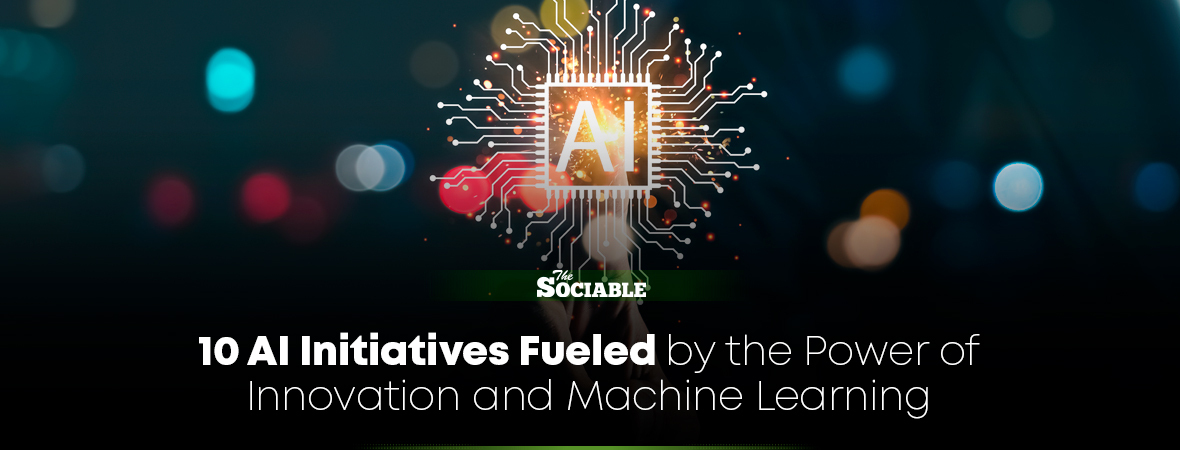Article by Yotam Kramer, VP of Marketing at SQream
If you thought AI adoption was close to its peak, data suggests otherwise. The GenAI market is poised to explode, expected to grow to $1.3 trillion over the next 10 years from a market size of just $40 billion in 2022.
This huge uptake is being driven by the sizable business opportunities that AI can deliver, whether by automating elements of service delivery or finding key insights within enterprise data volumes.
However, as more organizations move forward with AI implementation, the growing pains are becoming clearer. In June 2024 our team published the State of Big Data Analytics Report that analyzed big data activity at 300 US enterprises with at least $5M+ annual spend on cloud.
Here, our team found that 71% regularly experience ‘bill shock’, and 41% list high costs as the primary big data challenge. With 92% of companies surveyed actively aiming to reduce cloud spend on analytics, the findings of the report suggest AI and big data projects are being compromised due to cost concerns.
To address this, more efficient ways of handling and processing data are going to be key. One way to do so is by changing the underlying computing technology being used to run data projects and incorporating more powerful tools like graphic processing units (GPUs).
This is where GPUs come to the fore. Its advanced processing capabilities have the ability to handle big data volumes and complex queries at a much faster pace, saving time, money, and resources as a result.
Improving ROI and the cost-performance ratio on big data projects is critical to the future of many important AI initiatives that span the breadth from medical breakthroughs and environmental initiatives to industrial engineering.
The good news is that data scientists and executives worldwide are spearheading innovative AI use cases by leveraging the best-in-class infrastructure solutions. Here we present a selection of 10 standout examples of leaders improving the ROI of AI projects in innovative ways

Tamir Edwy, Chief Information Officer, Hertz
The Hertz Corporation is one of the world’s largest car rental brands. Yet managing such a massive fleet comes with its own unique challenges.
To address this ahead of time, Hertz has recently partnered up with Ravin AI for a pilot to see how visual inspection technology can improve efficiency and customer satisfaction.
Tamir Edwy, Chief Information Officer of Hertz, is helping to support innovation across the company, which is aiming to leverage AI-powered visual inspection across the fleet, rental, used car and insurance industries thanks to Ravin AI’s capabilities.

Vasanthi Chalasani, North America Chief Information Officer, Procter and Gamble
Procter and Gamble (P&G), the American multinational goods corporation, is well known for its product lines that span across household products, beauty and healthcare to name a few examples.
However, despite a long and impressive track record, this multinational hasn’t been afraid to keep up with the pace of change. P&G is also focused on scaling AI initiatives by building organizational AI fluency and skills, and standardizing AI development throughout the company for speed and efficiency.
Vasanthi Chalasani is Senior Vice President: North America Chief Information Officer & Consumer Insights leader at Procter and Gamble, playing a leading role in integrating AI to address specific operational tasks like distribution and retail, media planning and buying, product and package innovation, and manufacturing and back-office operations.

Adil Rizvi, Senior Director, Cloud Platform Engineering, Banner Health
The operating theater is a critical part of any healthcare delivery system. However, while cutting-edge tech like robotics and computer vision are being applied to surgical tools, the platform as a whole often relies on outdated management processes. Processes such as manual schedules and operational inefficiencies risk impeding progress and impacting revenue from surgical services. Banner Health is looking to make a positive impact here.
Phoenix-based Banner Health, one of the largest nonprofit healthcare systems, is actively investing in AI, in part via its partnership with Qventus.
Adil Rizvi is Senior Director, Cloud Platform Engineering at Banner Health and is a leader in AI.

Andy Markus, Chief Data Officer, AT&T
Andy Markus is the Chief Data Officer at AT&T, which as a Telco giant is actively investing in GenAI technologies.
For example, AT&T has autonomous assistants up and running that can take the fraud alerts generated by its GenAI tools and stop a fraudulent transaction before it happens.
Additionally, the company is exploring how it might be able to use multiple LLM-enabled assistants at the same time to solve more complex business problems.
Earlier Andy was Senior Vice President at WarnerMedia.

Klaus-M. Schremser, Founder, GroWTF Ventures
AI is also showing its ability to shake up the venture capital industry, and GroWTF Ventures, a leading venture capital firm that creates bespoke funds for investors with unique strategic needs specializing in Seed to Series A stages, is showing how this can be done.
Klaus-M. Schremser is its Founder and helps to lead Product Growth at the pioneering investment fund. The company is also working on Otterly.AI, which is a brand and content monitoring platform for AI-driven searches.

Keith Enright, Board of Director, Zoom
Keith Enright is on the Board of Directors at Zoom and has over 20 years of senior executive experience focusing on legal leadership and AI governance. As Google’s Chief Privacy Officer, he earlier led the company’s worldwide privacy and consumer protection legal functions.
Zoom has consistently been at the forefront of GenAI, with its AI Companion serving as a next generation AI assistant across the Zoom platform. The solution from the enterprise empowers individuals by helping them to be more productive, to connect with teammates, and to collaborate effectively.

Venkata Naga Sai Kumar Bysani, Lead Data Analyst, BlueCross BlueShield of South Carolina
BlueCross BlueShield (BCBS) is a federation of 35 independent health insurance companies that provide coverage to over 100 million Americans. In a commitment to delivering the best quality of care to its huge client base, the company has looked to AI and cloud technology.
With machine learning, BCBS aims to learn how to improve medication adherence with patients. In addition, predictive analytics promise to offer personalized interventions to make improvements to adherence rates that will ultimately help to improve patient outcomes.
Venkata Naga Sai Kumar Bysani is the Lead Data Analyst of BlueCross BlueShield of South Carolina.

Sherin Varughese, Senior Data Scientist, Red Hat
Sherin V, Senior Data Scientist at Red Hat, is contributing to the availability of powerful AI tools that other organizations can leverage. In this regard, Red Hat has long been a pioneer, with global customers using its platform to build, deploy, monitor, and use AI models and applications.
The team at Red Hat also supports the open-source community, seeing this as a key way to accelerate speed, trust, and transparency within the artificial intelligence industry.
Will Wagner, Data Architect, Yahoo!

Web service provider Yahoo! offers a search engine, curated news stories, finance updates and more. This brand was an unmissable part of the early days of the internet and now the company is in the midst of a major innovation initiative.
Machine Learning is core to Yahoo!, with its researchers and engineers developing and deploying large-scale ML and deep learning algorithms on one of the largest grid computing platforms in the world. With over 100 billion daily user activities and over 200 billion daily ad requests across its global media and advertising networks, the insights that AI promises to unlock are huge.
Here, Will Wagner is a Data Architect at Yahoo!.

Arya Eskamani, Founder, Dataframes
Arya Eskamani is the Founder of Dataframes, where he oversees the educational, self-assessment and self-development content on its online platform, and is a leader in AI at Worth AI, a minority-founded SaaS platform powering inclusive financial underwriting through AI.
Worth AI looks to empower businesses with business risk management and real-time AI underwriting solutions, enabling banks, credit unions, fintechs, and financial service providers to rapidly accelerate approvals for business loans, financial services, and lines of credit with a single business credit score.












